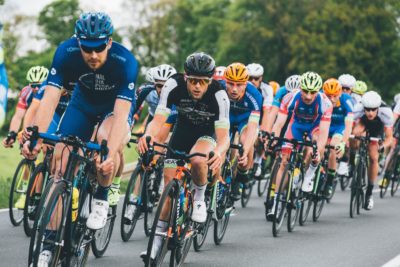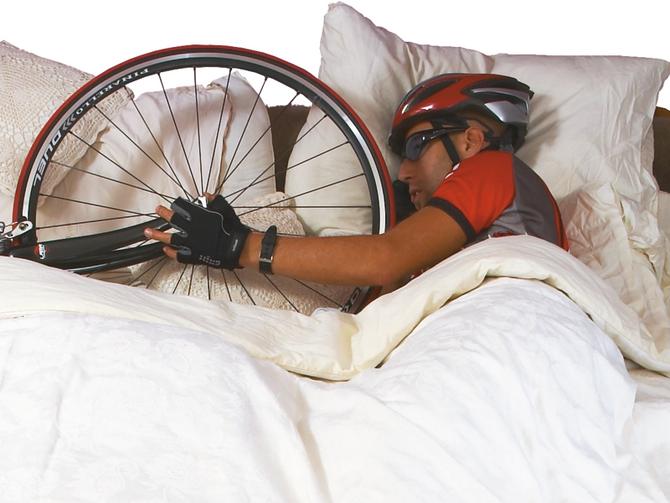
If I could tell you that I had access an incredibly effective performance enhancer that couldn”™t be picked up on any drug test and is completely and utterly free, I”™m fairly sure you accuse me of lying.
What about if I then said that you had unlimited access to it too? You”™d probably just shake your head and walk away. Well it”™s all true. What is this wonder drug? Sleep. That”™s what.
Sleep has been called the most potent natural performance enhancer known to humankind. With very good reason. Below we take a brief look at exactly how sleep and athletic performance are linked…
Sleep and training
Getting sufficient rest is vitally important for all of us, athlete or not. It plays a role in just about every single thing we do, The Sleep Advisor team discuss this in great detail. But it”™s importance takes on new levels when you start putting your body under unusual amounts of physical strain — like training for a race for instance.
No amount of hours spent on the track or gym will make you into a top athlete if you are not sleeping well. Those hours pumping iron or pedaling furiously are actually doing your body harm, you are tearing muscle fiber down. it's only with sufficient down time that the body is able to repair and reinforce.
Any training regime that clocks up the hours spent in the gym or on the track, without making account for sufficient time to allow the body to repair itself, is doomed to end in failure.
So if you are looking for things to cut out of your schedule to make space for more training don”™t you dare thing about cutting your sleep shorter. Dump the girlfriend, quit the day job or cancel your Netflix subscription. But don”™t cut out on sleep. If anything you should be sleeping more.
Sleep and motor skill acquisition
When it comes to learning new skilled actions and behaviors such as those needed for athletic success, it has long been thought that practice is the only thing required for improvement. Studies now suggest this view to be too simplistic.
Research now suggests that the brain continues to learn even when the day”™s practice session is over. In fact it”™s during sleep that night that the brain consolidates any new techniques learnt during the day. Say for instance you”™re working on a new tennis swing, it”™s during your sleep than the brain replays the action over and over again.
So remember, it's no longer just ‘practice that makes perfect”™ when it comes to mastering a new technique. It”™s ‘practice, sleep, practice again, makes perfect”™. Not quite as catchy I will give you that, but more accurate.
Sleep and performance
The gap between medal winners and also rans (or also-cycled), often involves little more than hundredths of seconds. Sleep has a huge impact on cognitive performance. The difference between winning a race and finishing dead last could be as little as an hour more (or less) in bed.
Don”™t believe me? Ok. Just as a thought exercise, try and recall the last time you had a bad night”™s sleep. Statistics suggest you won”™t have to think too hard on this. Now consider for a moment what your reaction times were like. I bet it took you a good five minutes to even decide what breakfast cereal to have. Now imagine you”™re on the starting line waiting for the gun to go off. Yikes!
The impact poor sleep has on reaction times has been compared to the impact alcohol has. And no athlete looking to perform at the highest level would dare turn up to race after a couple of pints. In terms of performance that”™s exactly what they”™re doing if they turn up after a bad night”™s rest.
Sleep and injury
Excelling at your chosen sport is a lot to do with consistency, are you able to get out there week after week and perform at a high level? If the answer is no, it might not be because of a lack of talent but because your body simple can't cope.
Study after study has shown that one of the most reliable predictors of injury in athletes is how well they sleep. It”™s quite simple, athletes who got eight or more hours a night have been shown to get injured far less than athletes who sleep less than eight hours.
There seems to be two main reasons for this. The first relates to what we discussed above, our body needs time to repair and prepare, sleep is this time. If we don”™t get enough sleep or our sleep is broken then those repairs and preparations aren”™t properly carried out. The result is injury.
Training without sufficient sleep is kind of like driving the car out of the garage before the mechanic has put the engine back together and bolted the wheels back on. You might get a little way down the road but it ain”™t gonna be pretty!
The second reason for the upturn in injury amongst sleep-deprived athletes relates to cognitive performance. When we”™re tired we”™re low on energy and our reaction times are significantly impaired. To make up for these shortfalls we overcompensate. We stretch further than we should. Tackle harder than we need to. This overexertion leads to poor technique. Both of which can lead to injury.
If you”™re an athlete and you”™re trying to work out why you keep getting injured or why your times simply aren't improving as you”™d hoped — maybe it”™s not your training or your diet that needs altering — but your bedtime. Sweet dreams!
- How Proper Sleep Affects Athletic Performance - September 19, 2018

